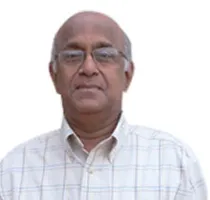Inter-state relations in the Northeast Asian region have changed drastically in recent years thanks to the rapidly evolving new equations among China, Japan and South Korea. The visit made by the newly elected South Korean President Park Geun-hye to Beijing in the last week of June highlighted the changing strategic equations between South Korea and China. Traditionally, a newly elected South Korean President visits Washington first, followed by Tokyo. To be sure, this time, President Park, as expected, did visit Washington first in May, but followed it up by a visit to Beijing and not to Tokyo. Many analysts have interpreted this to speculate that China has taken precedence over Japan in Seoul's diplomatic calculations.
The new Chinese administration under President Xi Jinping expectedly showed utmost warmth and courtesy to President Park during her official visit and their joint statement gave a long list of how the two countries would expand their ties in the coming years-in both security and economic spheres. The first and foremost priority for President Park was to ensure peace and stability on the Peninsula. North Korea's nuclear programme naturally formed the most important subject on her agenda in Beijing. Both Xi and Park agreed that North Korea's nuclear brinkmanship was unacceptable and that they would cooperate closely towards its termination for ensuring peace and stability on the Peninsula. In pursuance of this objective, they also strongly pleaded for the faithful implementation of such international agreements as the UN Security Council resolutions and the September 2005 statement. Both also agreed to work towards the resumption of the Six Party talks as early as possible. Earlier during her visit to Washington, President Park had also urged President Barrack Obama to make efforts to convene the Six Party parleys as a way to address the threats posed by North Korea. But she knows that China, as a strong ally of Pyongyang, has a far greater clout with North Korea than any other country. President Park even favored the creation of a framework for dialogue among the US, China and the ROK.
In recent years, both South Korea and China have nursed common grievances against Japan in matters of historical legacies and strongly urged Tokyo to show greater sensitivity to issues like official visits to the Yasukuni Shrine in Japan and the enormous sufferings caused to Chinese and Korean "comfort women" by the Japanese military during the Second World War. Both Xi and Park expressed "regret" that confrontation and distrust had deepened among East Asian countries "due to historical and related problems." Both leaders, however, expressed their hope that the aborted trilateral Japan-China-South Korea summit would be held before the end of the year. It may be mentioned that the trilateral summit has held meetings independently since 2008 raising strong expectations that the three countries would speedily move in the direction of even signing a free trade agreement.
Economic Relations: South Korea is a major economic partner of China and the bilateral trade has reached a total of $ 220 billion in 2012. Interestingly the Sino-ROK trade is bigger than the ROK-Japan and the ROK-US trade put together. Enjoying a favourable trade balance, South Korea has envisaged that its bilateral trade with China would reach even $300 billion by 2015. To further expand their trade, both countries have decided to take measures to enter into a free trade agreement.
In contrast to the robust Korea-China relations, both Seoul and Tokyo have witnessed serious tensions in their relations particularly since August 2012 when former Korean President Lee Myung-bak made an unprecedented visit to the controversial island, Takeshima, which is under the administration South Korea, but claimed also by Japan. After returning to power in December last year, Prime Minister Shinzo Abe tried to mend the bilateral relations by sending his senior ministerial colleague Taro Aso to participate in the inaugural ceremony of Park Geun-hye. President Park appreciated the gesture, but unfortunately certain developments occurred in their relations which widened their differences. In the last week of April 2013, more than a hundred LDP legislators including several cabinet ministers visited the Yasukuni Shrine. Unfortunately, their visit also coincided with certain controversial statements that Prime Minister Abe himself made on the question of defining the word "aggression" in a proper historical context. In addition, in May, President Park addressed the US Congress where she criticized Japan's lack of sensitivity to historical issues. The Japanese media picked it up and considered it as a direct attack on Japan. As a sequel to these unfortunate developments, South Korean foreign minister who was to visit Tokyo to meet with his Japanese counterpart cancelled his trip. There was one more opportunity in May when South Korea was scheduled to host the annual trilateral summit with China and Japan. But even that meeting could not be held as China was not inclined to attend it mainly because of its own differences with Japan on the Senkaku/Daiyotai territorial issue.
It was under these circumstances, a meeting between Japanese Foreign Minister Fumio Kishida and his South Korean counterpart, Yun Byung-se was arranged on the sidelines of the ASEAN Foreign Ministers Meeting held at Bandar Seri Begawan, Brunei on 1 July. Both leaders carefully avoided controversial issues in their brief meeting which was essentially meant to break the diplomatic ice and pave the way for future interactions.
(Prof K.V. Kesavan is a Distinguished Fellow with Observer Research Foundation, Delhi. He is presently with the Woodrow Wilson International Center for Scholars, Washington D.C.)
The views expressed above belong to the author(s). ORF research and analyses now available on Telegram! Click here to access our curated content — blogs, longforms and interviews.

